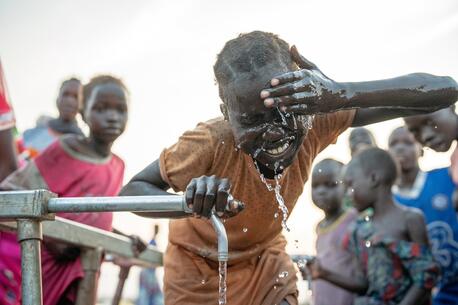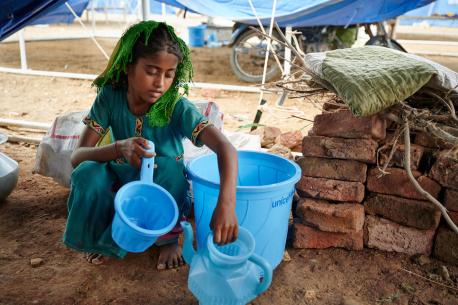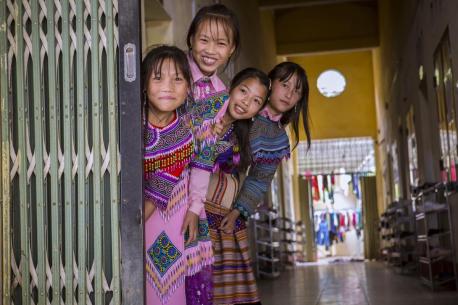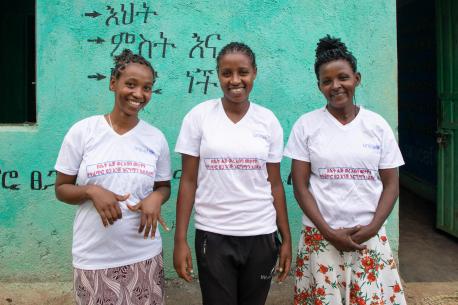
How Good Menstrual Hygiene Keeps Girls Learning
Period problems can get in the way of a girl’s brighter future. Here’s how UNICEF helps.
A quality high-school education can transform a girl's future, yet around the world, many adolescent girls miss school or even drop out altogether for one simple reason: menstruation.
Schools often lack the supplies and sanitation facilities girls need for managing their periods. Girls without adequate health care may feel discomfort or pain. Shame, stigma and misinformation may discourage girls from attending school while menstruating and prevent schools from teaching healthy attitudes about menstruation. Many girls stay home to avoid being teased.
Gender inequality, cultural taboos, poverty and lack of basic services undermine many girls’ and women’s ability to meet their health and hygiene needs. A natural disaster or disease outbreak can exacerbate these deprivations, with far-reaching adverse effects. For girls growing up in refugee camps and conflict areas, the challenges are even greater.
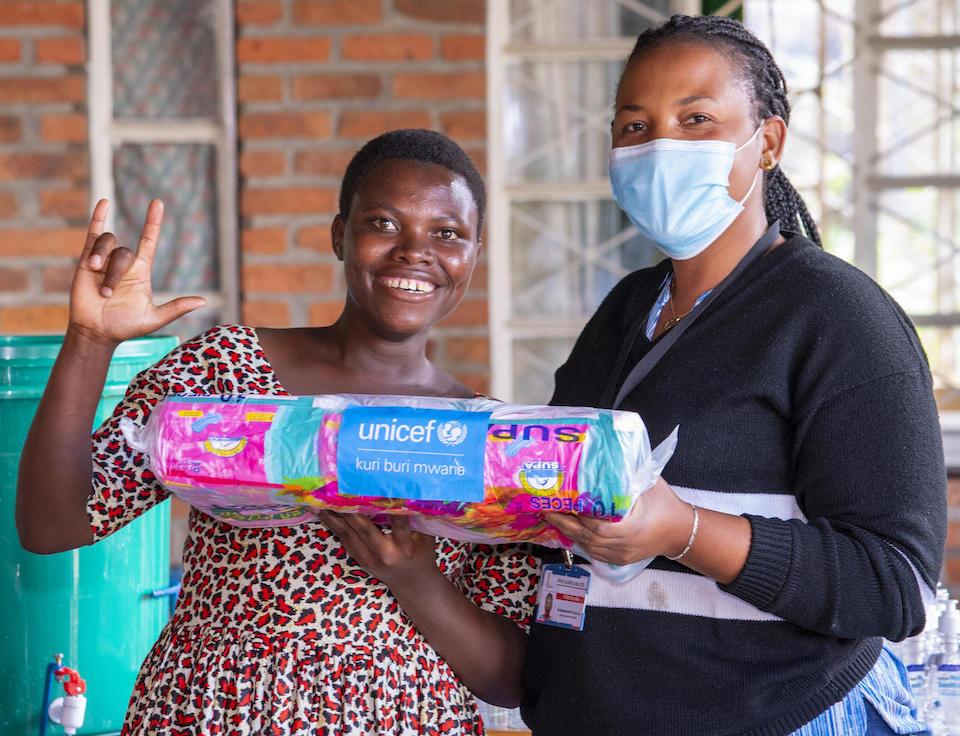
Impoverished families are often forced to prioritize food and other essentials over personal hygiene materials such as disposable or reusable sanitary napkins.
UNICEF works in various ways to help ensure that health workers, patients and vulnerable women and girls have access to menstrual health and hygiene supplies, along with water and sanitation facilities required to manage their periods safely and with dignity.
UNICEF has a proven track record of supporting menstruating girls and helping them get what they need so their periods don't get in the way of their daily lives. UNICEF also helps eliminate shame and stigma associated with what is healthy, normal development, by helping to educate girls, their classmates and communities about what menstruation is — and sometimes what it is not.
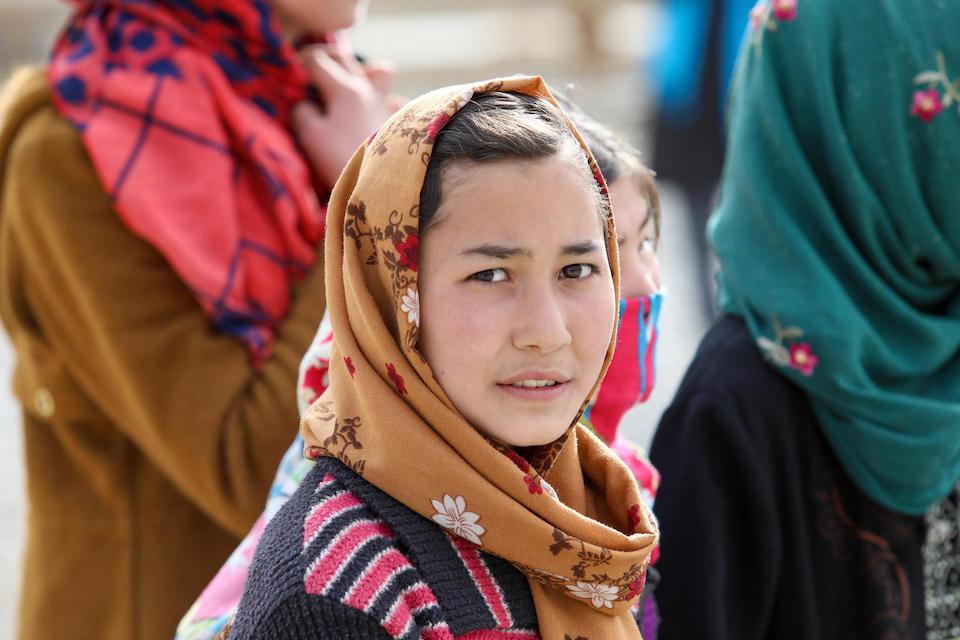
Other programs focus on providing or improving access to sanitary supplies, disposal facilities and other basic things that can make a great difference to a girl.
Many girls greet their first periods with alarm, without knowing anything at all about menstruation. Others are burdened with misinformation and superstition.
In Nepal, for example, local superstitions prevent menstruating girls from going to school, looking in the mirror, trimming their nails or touching flowers, fruit, drinking water or pickles, among other things. Some communities still follow the traditional Nepali custom of sending menstruating girls to live alone in unheated chhaupadi huts, leaving them vulnerable to exposure to the cold, smoke inhalation and attacks by animals, with sometimes fatal results.
Lack of accurate information leaves room for confusion and embarrassment, the repercussions of which can be far-reaching for girls and their communities.
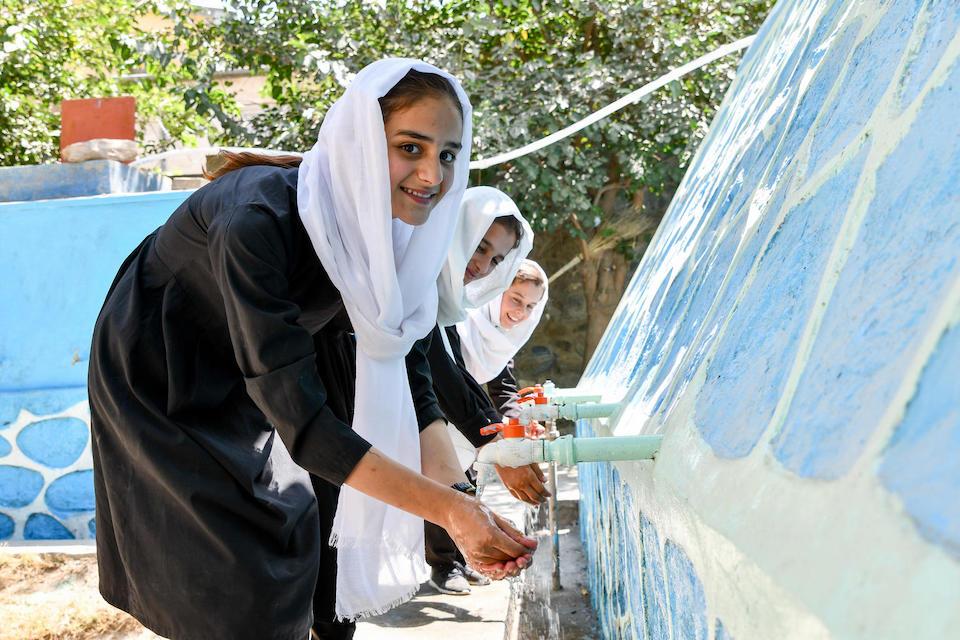
Teaching everyone — including boys — about menstruation is key to eliminating shame
Shame and misinformation about menstruation are a global problem, in both high- and low-income countries. A recent report found that menstruation taboos in East and Southern Africa can keep girls and women from touching water or cooking, attending religious ceremonies or engaging in community activities. Involving whole communities fosters a better understanding of menstruation. Communities are more successful at questioning taboos and reducing stigma when parents and leaders, and boys as well as girls, share in the effort.
UNICEF focuses on and empowers girls and women. An important way to do that is to educate boys. Comic books and video programs, peer mentoring and group activities reduce teasing among young people. Community-wide measures help prevent menstruating girls from being restricted in their activities. Better understanding buoys up girls as they grow, with support from their peers and communities.
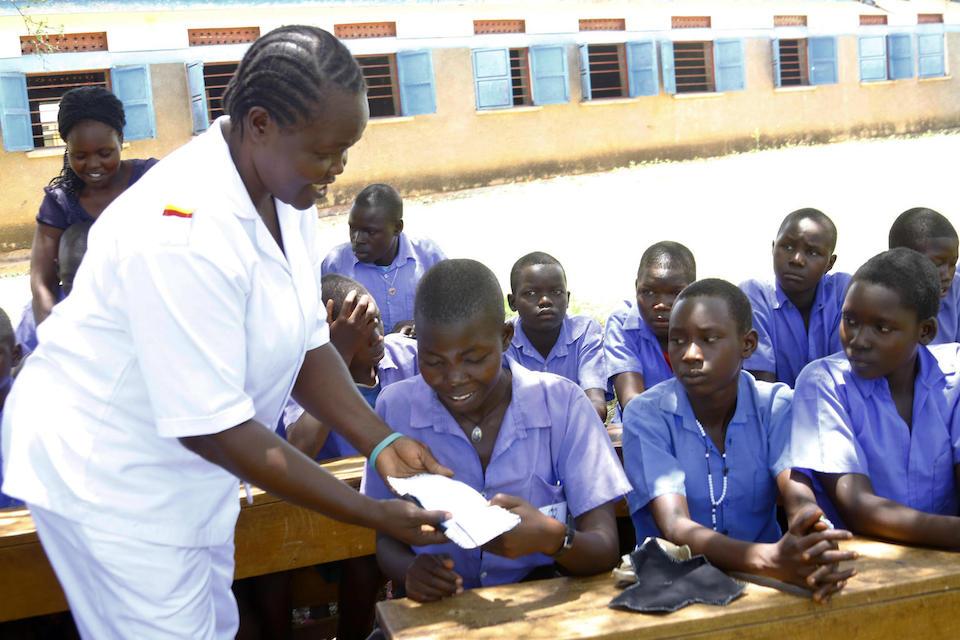
Schools can help by providing a healthy physical and social environment
UNICEF offers school-based solutions that achieve a double purpose. In addition to education — including education about health and hygiene — schools can be a place to find water, toilets, privacy and support.
At the Kaswenthe Primary School in Chitipa, Malawi, UNICEF and partners built a private changing room for adolescent girls, equipped with soap, buckets and safe water. Volunteer counselors from the school's "Mother Group" also offer advice and handsewn sanitary pads to ensure every girl remains in school.
"Most of the girls were encouraged to stay home by their parents upon reaching puberty," says Mercy Gondwe, Vice Chairperson of the Kaswenthe Primary School Mother Group. "The next thing you hear is the girl is pregnant or she is married. And that was really sad for our community.
"We realized that during our days, we did the same thing and now we are struggling with poverty," Gondwe continued. "We didn't want our children to go through the same. We wanted things to change in our community and we realized that we are the people that can make a difference in the lives of these girls."
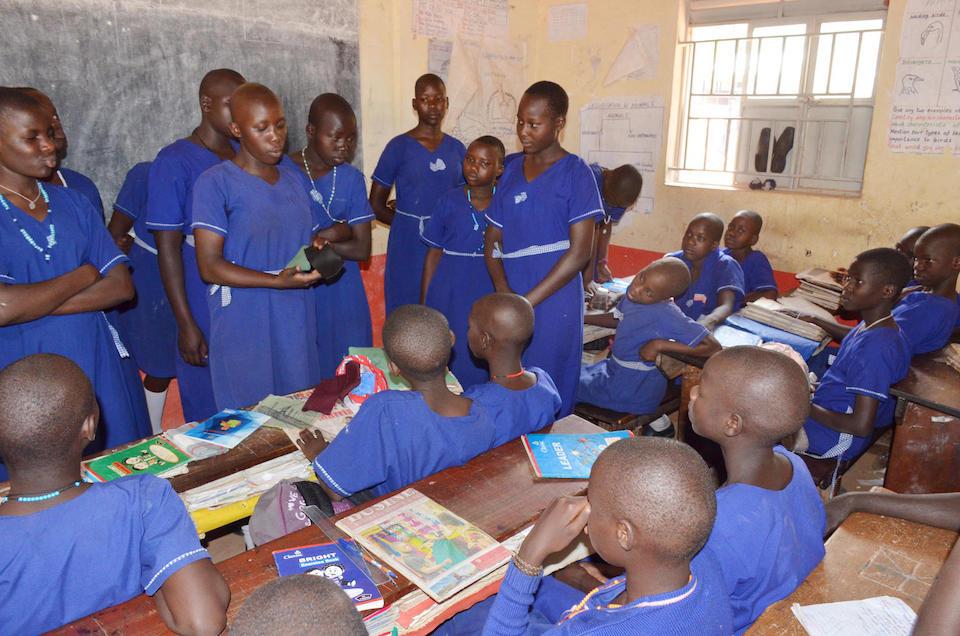
Getting students to talk about puberty
At schools that offer information and provide for privacy and cleanliness, girls gain dignity and self-respect along with an education.
"Girls have learned since childhood that talking about menstruation is inappropriate and shameful," says 17-year-old Aigerim, who participated in a UNICEF-sponsored peer-to-peer training program on menstrual hygiene management in Kyrgyzstan. "But the training opened my eyes; I began to see that it is a natural biological process, and nothing to be ashamed of."
Age-appropriate education about hygiene, cleanliness and sexual and reproductive health develops knowledge and encourages positive attitudes and behaviors. Health education also helps foster the expectation that relationships should be supportive and equitable. Clean water and private toilets also contribute to a safe social environment where girls are treated with respect and understanding.
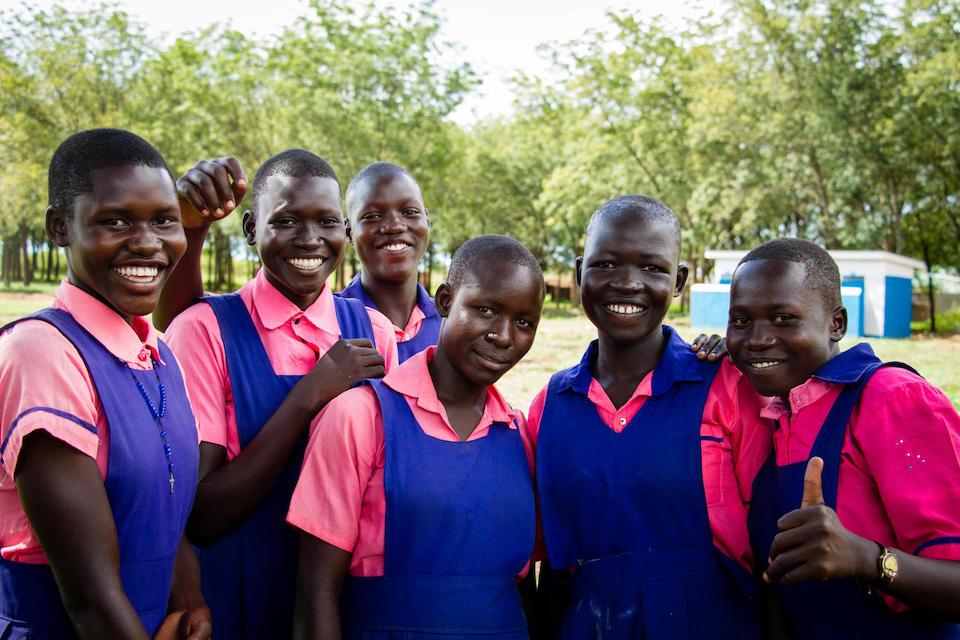
Supporting adolescents in the present is important to the future
By supporting UNICEF, you can help UNICEF continue to:
- expand programs that support menstrual health and hygiene, adapting them for different cultures and conditions
- provide information to young people to ensure their understanding that menstruation is normal and healthy and can be managed without fear or shame — and without missing out on an education.
- improve girls' access to a healthy environment, where there is safe water, soap and private disposal, along with access to health care
- help make adolescence easier and safer for girls
Send reusable menstrual care kits for five girls with a UNICEF Inspired Gift.
